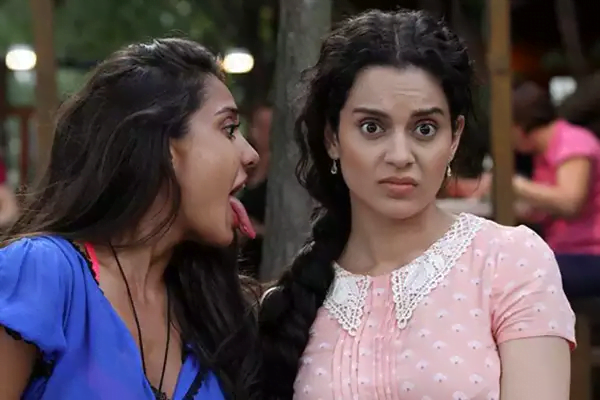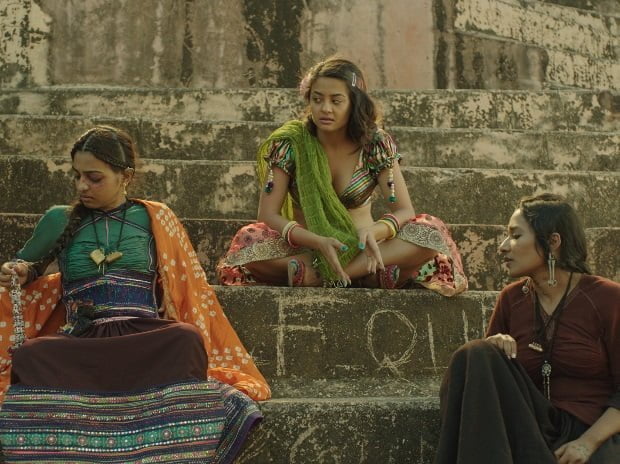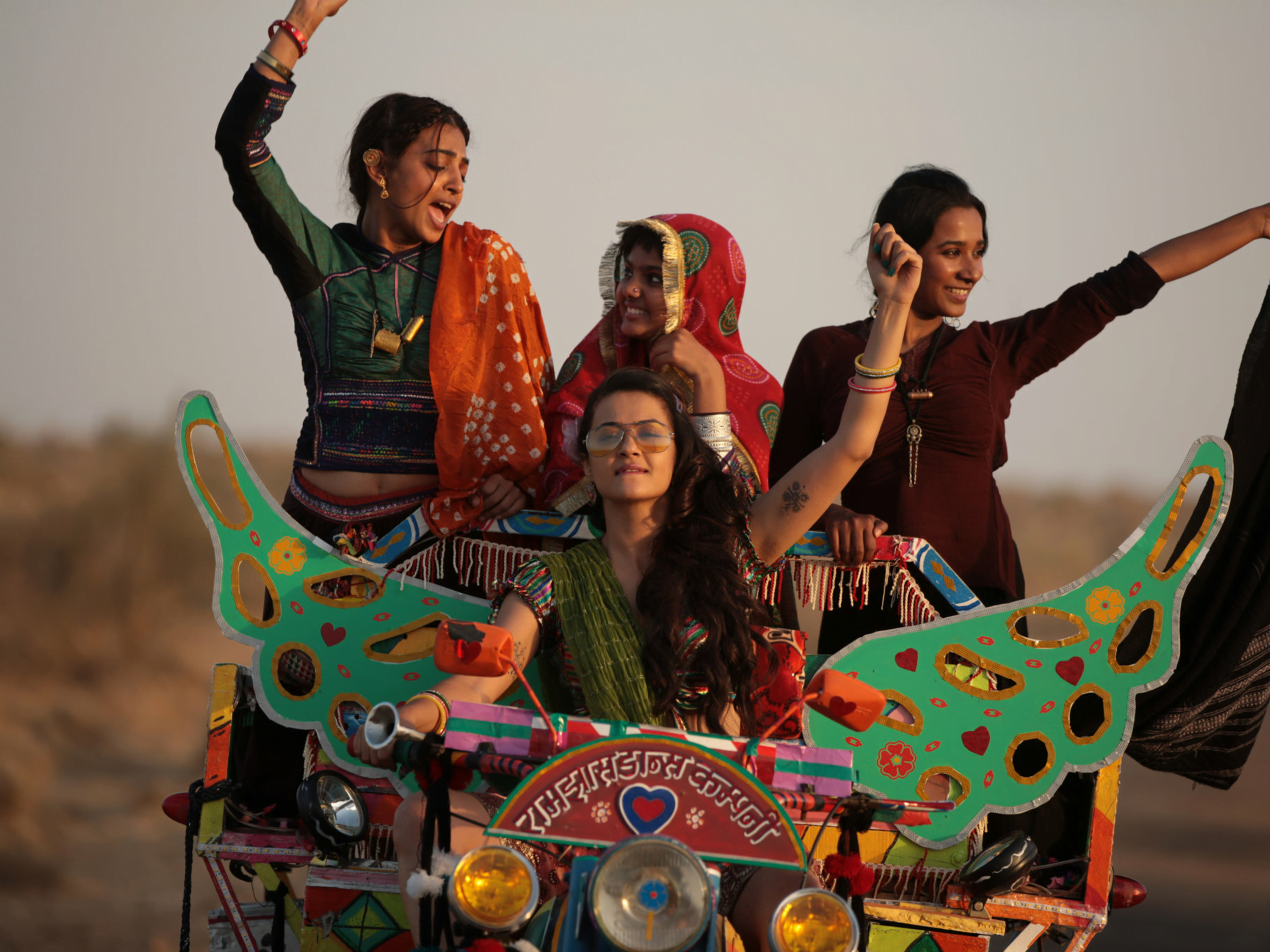Examples of female friendships are all around us. And yet, if one was to go solely off of the on-screen depictions of these friendships, they may as well be non-existent. Male friendships have been given their due in Indian cinema — think of Anand and Dr Bhaskar from Anand (1971) or the iconic Jai and Veeru from Sholay (1975).
Women have been cast as arch rivals fighting over a man’s attention (whether that man be their husband or son) or scheming screws or bumbling idiots. There is a very obvious lack in the depiction of realistic female friendships in cinema, especially in Indian cinema. So much so that one could get tongue-tied trying to name even one example.
So here are four examples of on-screen friendships between women that we cherish and applaud.
1. Queen, an epitome in friendship between opposites
Queen follows Rani (Kangana Ranaut) as she embarks upon her honeymoon by herself after her fiancé Vijay (Rajkumar Rao) stands her up a couple of days before their wedding. Rani is a somewhat naive, sheltered young woman when we meet her but over the next few days, as she explores Europe all by herself, she discovers that she can do well enough without Vijay after all.

In Paris, Rani meets Vijayalakshmi (Lisa Haydon) who is working at the hotel that she is staying in. The two are opposites in every way— Rani wears body-covering kurtis, Vijayalakshmi wears fitting tops and shorts, and Vijayalakshmi swears, drinks and smokes while Rani (at least initially) looks on in disgust and derision. Through Vijayalakshmi, Rani learns to let go of her former life and the limits that Vijay had placed on her. She dances and drinks and cries to her heart’s content in Paris, everything she knew her fiancé would have chided her for in the past.
2. Wonder Women and friendship based on shared experience
Wonder Women is director Anjali Menon’s fourth feature film and the very first that is not entirely written and shot in the Malayalam language. Wonder Women is the story of a diverse group of women who wind up at a pregnancy retreat of sorts in Kozhikode, Kerala. They speak different languages, being from different states, not to mention different age groups and social classes.
In short, all they do seem to have in common is that they happen to be pregnant at the same time. But Menon successfully brings out something that binds these women together, the shared experience of being a woman, of being an expecting mother and the genuine human empathy that makes them care for one another.
The film tries to show us the varied ways that motherhood can manifest — Mini (Parvathy) is a newly divorced single mother, Nora (Nithya Menon) is in a live-in relationship with her baby’s father and Jaya (Amruta Subhash) is an older woman who became pregnant through IVF treatments after three miscarriages. They are a mismatched bunch, but in that retreat, they become bonded by the love they share for their children.
3. Parched, friends from the same village
Parched is the story of three women living in a village in Gujarat. There is Rani (Tannishtha Chatterjee), a widow struggling to keep her household of three afloat. She marries off her philandering son Gulab (Riddhi Sen) to a young girl from a neighbouring village named Janki (Lehar Khan). Rani’s aide and confidante is Lajjo (Radhika Apte), a feisty young woman trapped in an abusive marriage. Her husband taunts her endlessly for her inability to produce children, despite having been married for years. Bijli, a sex worker and dancer, completes the trio.

Bijli leads a strikingly different life compared to the other two women. Unlike the other women, she is not married and so not expected to cook, clean or rear children. Though being a prostitute comes with a certain level of financial independence, she is also acutely aware of how easily replaceable she is in her line of work. These three women form the heart of the story. They hold each other up and sometimes they tear each other down, but they always show up for each other when the occasion calls for it.
At one point, Bijli recounts how she first met Rani to Lajjo. Rani was the wife of one of her customers, with whom she developed an unbreakably strong bond over the years. For Bijli, Rani is simply the most important person in the world.
4. Unexpected friendship in ‘Lipstick Under My Burkha‘
Alankrita Shrivastava’s directorial debut follows the lives of four women who have little in common except for their home addresses. Ratna Pathak Shah plays Usha, an elderly matriarch who is addressed lovingly (and of course respectfully) as Buaji.
She had quite forgotten that her identity lies beyond just being the neighbourhood’s Buaji until she meets Jaspal, a much younger swimming instructor for whom she harbours a secret passion. She then reimagines herself as Rosy, the attractive young heroine of the pulp fiction novel that she reads in secret. Rehana (Plabita Borthakur) is a college fresher who, in an attempt to fit in with her peers, wears lipstick under her burkha and even does away with the burkha itself by favouring a top and jeans.
Ahaana Kumra’s Leela runs the neighbourhood beauty parlour and finds herself trapped between two men, one being her secret boyfriend who will not commit and the other her well-off fiancé who would rather she give up her day job. Shireen played by Konkona Sen Sharma is a housewife, struggling to rise out of her husband’s shadow and make a name for herself in the world.
Though they live within the confines of this small, conjugated neighbourhood their paths rarely cross in the film, that is until the very end. At the very end of the film, we see the four women finally gathered together in a room looking at the shredded covers of Usha’s erotic novels, trying to piece the titles together.
And though they may have failed at what they set out to do initially, for a few minutes any worries dissipate into the air as they laugh and smoke cigarettes together. Though they know the future to be uncertain, they are comforted by the fact that they are no longer alone.
About the author(s)
Keerthana (she/her) is a third-year English Literature student at St. Stephen’s College, Delhi University. She is interested in analysing art and pop culture through feminist and other sociocultural theories. She enjoys literature, music, films and the occasional cricket match.




